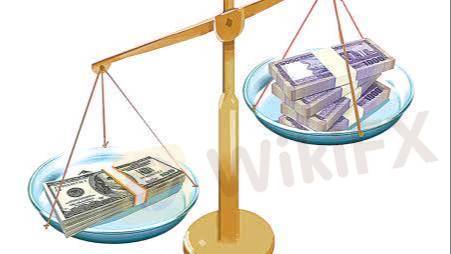
2025-02-17 22:54
IndustryProtecting funds against currency devaluation risk
#forexrisktip
Currency devaluation is when a currency loses value relative to another currency. This can happen for a number of reasons, including economic downturn, political instability, or changes in monetary policy. When a currency devalues, it can make imports more expensive and exports cheaper. This can lead to inflation and other economic problems.
There are a number of ways to protect your funds against currency devaluation risks. One way is to invest in assets that are denominated in a stable currency, such as gold or US dollars. Another way is to diversify your investments across different countries and currencies. You can also use financial instruments such as forward contracts and options to hedge against currency risk.
Here are some specific strategies you can use to protect your funds against currency devaluation risks:
* Invest in foreign assets. This can help you diversify your portfolio and reduce your exposure to any one currency.
* Use currency hedging. This involves using financial instruments to offset the risk of currency fluctuations.
* Keep your money in a stable currency. If you are concerned about the devaluation of your local currency, you can keep your money in a more stable currency, such as US dollars or euros.
* Invest in inflation-protected securities. These securities are designed to protect your investment from inflation, which can be caused by currency devaluation.
It is important to remember that there is no foolproof way to protect your funds against currency devaluation risks. However, by taking some precautions, you can reduce your risk and protect your investment.
Like 0
FX5537895922
Trader
Hot content
Industry
Event-A comment a day,Keep rewards worthy up to$27
Industry
Nigeria Event Giveaway-Win₦5000 Mobilephone Credit
Industry
Nigeria Event Giveaway-Win ₦2500 MobilePhoneCredit
Industry
South Africa Event-Come&Win 240ZAR Phone Credit
Industry
Nigeria Event-Discuss Forex&Win2500NGN PhoneCredit
Industry
[Nigeria Event]Discuss&win 2500 Naira Phone Credit
Forum category

Platform

Exhibition

Agent

Recruitment

EA

Industry

Market

Index
Protecting funds against currency devaluation risk
 India | 2025-02-17 22:54
India | 2025-02-17 22:54
#forexrisktip
Currency devaluation is when a currency loses value relative to another currency. This can happen for a number of reasons, including economic downturn, political instability, or changes in monetary policy. When a currency devalues, it can make imports more expensive and exports cheaper. This can lead to inflation and other economic problems.
There are a number of ways to protect your funds against currency devaluation risks. One way is to invest in assets that are denominated in a stable currency, such as gold or US dollars. Another way is to diversify your investments across different countries and currencies. You can also use financial instruments such as forward contracts and options to hedge against currency risk.
Here are some specific strategies you can use to protect your funds against currency devaluation risks:
* Invest in foreign assets. This can help you diversify your portfolio and reduce your exposure to any one currency.
* Use currency hedging. This involves using financial instruments to offset the risk of currency fluctuations.
* Keep your money in a stable currency. If you are concerned about the devaluation of your local currency, you can keep your money in a more stable currency, such as US dollars or euros.
* Invest in inflation-protected securities. These securities are designed to protect your investment from inflation, which can be caused by currency devaluation.
It is important to remember that there is no foolproof way to protect your funds against currency devaluation risks. However, by taking some precautions, you can reduce your risk and protect your investment.
Like 0
I want to comment, too
Submit
0Comments

There is no comment yet. Make the first one.

Submit
There is no comment yet. Make the first one.